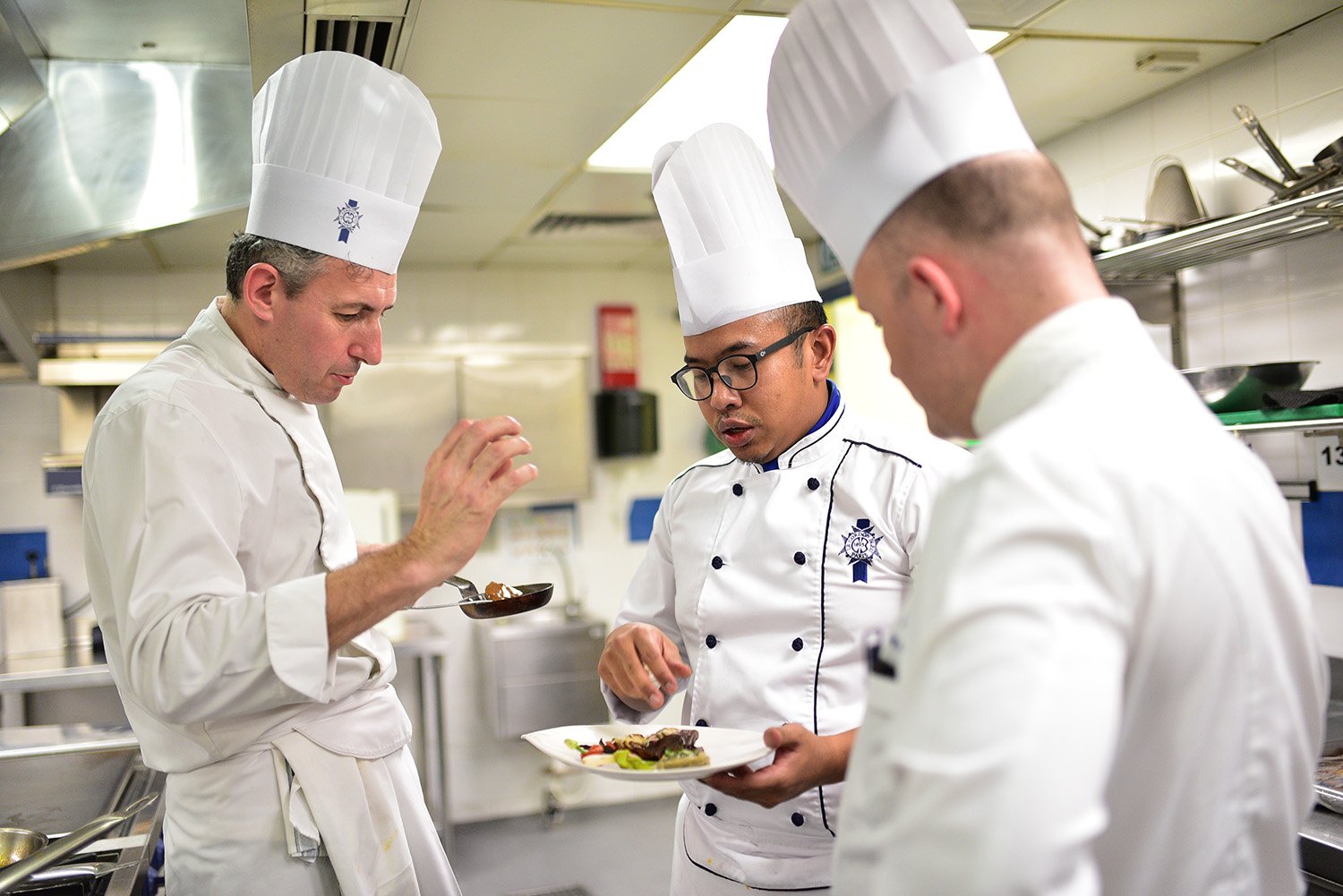
Open House with Sunway Education Group – 6 December 2025
Join us on 6 December 2025 for our Open House with Sunway Education Group! Experience Le Cordon Bleu’s world of culinary artistry through a live cooking ...
Simon Sinek has advocated that the key to achieving greatness is to always start with WHY. Why do we do what we do? If we know why we do something, it gives us a sense of purpose, drives us to work with passion and gives us the natural ability to inspire others.
Now what if your WHY comes from the gut? What if your stomach is your guiding force? What if your taste for life is at the tip of your tongue? What if music to your ears comes from the vibrations of chewing? What if the meaning of happiness is in the dining experience?
So if your gut is the source of happiness and passion along with a creative flair, welcome to the world of gastronomy and culinary arts!
There are chefs of all kinds who have different expertise as there are many areas of specialties in the culinary arts. These specialty areas are as interlinked as they are diverse. It is great to get to know them before you pour all your energy into one specific area. As food is something we all have a direct interest in, it is not uncommon to have a favourite celebrity chef that we respect and revere. Your dream of doing well in the culinary arts can come true. (Did you know that executive chefs are paid handsomely?)
The journey to becoming a chef begins with a few potent ingredients - a generous helping of love for the experience of food, and a fistful of creativity. Next, you’ll need to equip yourself with the right kind of skills in culinary arts. There are also skills in managing a kitchen and other chefs, skills in marketing yourself and your food, and skills in managing a restaurant as well. But with all of these things, food is at the centre of it – yes, food, the very thing that keeps us alive and gratifies our senses.
In becoming a chef, it is possible to do everything from scratch all by yourself. This means doing it by trial and error, learning from the Internet, and through your own mistakes. The advantage of taking this path is that you could just learn at your own pace and budget. You also do not have to commit to any fixed schedule. However, there are some disadvantages as well. For one, you may very well develop bad habits early on. There is also no one to check on your blindsides and correct your mistakes. (You may very well not even know something you were doing all the time was actually wrong or even dangerous!)
The other pathway is through working experience. This means you may have to start at a very junior position in a kitchen. Then work your way up, learning along the way. The major advantage of this is that you will be earning some money while learning. You will also have first-hand experience of the conditions of working in a kitchen. Having kitchen experience is a big plus over graduates without any hands-on experience. While working, you can do networking, which can help you connect to jobs in the future. The disadvantage of this pathway is that you are not learning from a professional teacher progressively in the field, so you may develop some bad habits. Another thing is that compared to graduates of culinary schools WITH a paper qualification, you won’t be as attractive when it comes to job offerings.
But you would agree that the best chance for success is to learn from masters who have done it all. It is less painful to learn from other people’s mistakes than your own. As in the past, today, master chefs pass on their knowledge and experience to their apprentices. Hence, from sourcing to ingredients, from preparation to tasting, from concept to marketing – there is much to learn for the apprentice. It can’t be done overnight. It definitely needs practice, and guidance from the right people – professionals. Also, think about the equipment and space required to practice all these wonderful skills! A culinary playground made in heaven!
 A right culinary school with global recognition awards and a legacy should provide you with the training of useful and practical skills, and expose you to a network of relevant people around the world. Professional chefs will also train your palate and expose you to many cooking styles that would make you very versatile. One such school is Le Cordon Bleu Malaysia. It’s one of the world’s leading culinary schools, with an international network. Here you learn from world renowned master chefs in areas from pastry & bakery, cuisine, management, and more.
A right culinary school with global recognition awards and a legacy should provide you with the training of useful and practical skills, and expose you to a network of relevant people around the world. Professional chefs will also train your palate and expose you to many cooking styles that would make you very versatile. One such school is Le Cordon Bleu Malaysia. It’s one of the world’s leading culinary schools, with an international network. Here you learn from world renowned master chefs in areas from pastry & bakery, cuisine, management, and more.
Find out more about courses offered in Sunway Le Cordon Bleu Malaysia:
Grand Diplôme - https://www.cordonbleu.edu/malaysia/grand-diploma/en
Diplôme de Cuisine - https://www.cordonbleu.edu/malaysia/cuisine/en
Diplôme de Pâtisserie - https://www.cordonbleu.edu/malaysia/patisserie/en
Diplôme de Boulangerie - https://www.cordonbleu.edu/malaysia/diplome-de-boulangerie/en
Basic Bread Baking - https://www.cordonbleu.edu/malaysia/basic-bread-baking-certificate/en
Advance Bread Baking - https://www.cordonbleu.edu/malaysia/advanced-bread-baking-certificate/en
Weekend short courses - https://www.cordonbleu.edu/malaysia/gourmet-short-courses/en
Copyright © 2026 Le Cordon Bleu International B.V. All Rights Reserved.